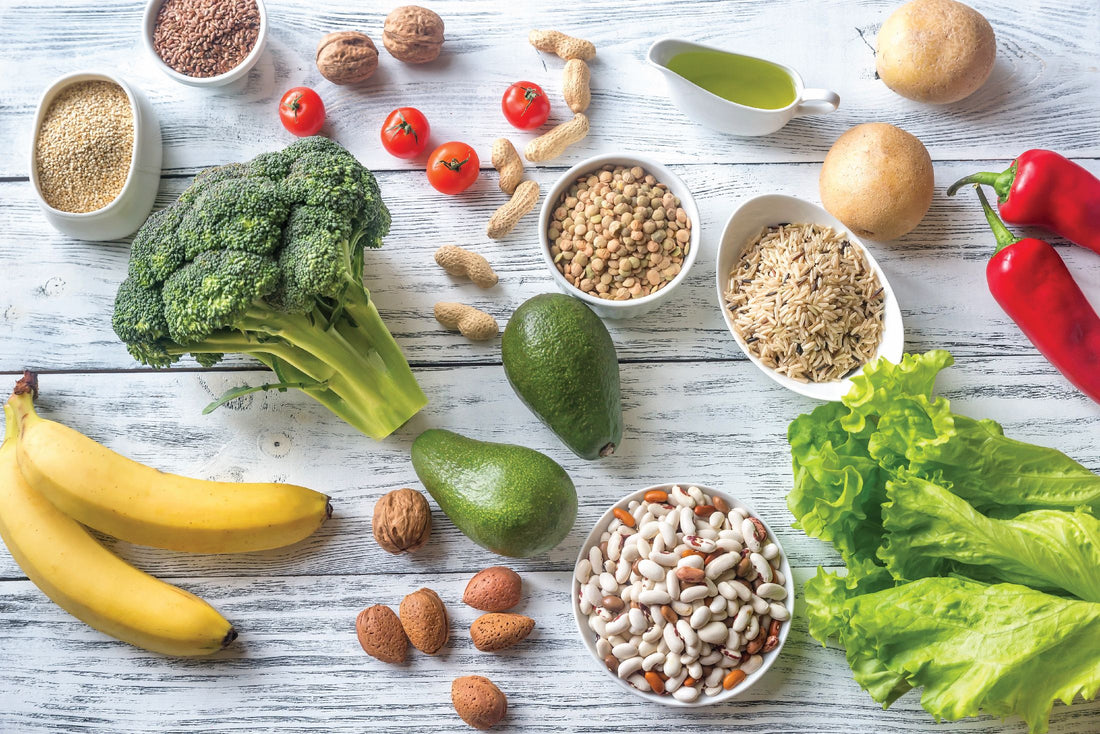
The History of Plant-Based Diets Around the World
Share
What do Beyoncé and Pythagoras have in common?
Aside from their contributions to society, they both followed a plant-based diet.
Contrary to popular belief, plant-based nutrition isn’t a modern invention. It has its deep roots in the past. Throughout human history, it’s just one of many different diets we’ve followed.
In today’s blog, we’ll explore the history of plant-based nutrition with the beliefs, political movements, and scientific discoveries associated with it.
Early History of Plant-Based Diets
Our plant-based history started hundreds of thousands of years ago during the Stone Age. Evidence suggests that our hunter-gatherer ancestors didn’t always succeed in catching meat for their meals. So, they often went back to eating plants, making up as much as 70% of their diet.
Later, even as we learned to domesticate animals, many civilizations still subscribed to a diet that was mainly composed of plants. In Middle Kingdom Egypt, for example, people only ate meat on special occasions. Typically, they ate legumes, grains, fruits, and vegetables for most of their daily meals.
In India, on the other hand, people abstained from eating animals because they believed in reincarnation and non-violence. According to historians, India has one of the longest and strongest plant-based diets in history. So much so that 81% of Indians today still subscribe to the same beliefs and diets.
However, mathematician Pythagoras was the first to record meat abstinence as a type of diet in the 6th century BCE. He called it the Pythagorean Diet and would often promote the nutritional benefits of a plant-based diet.
Modern History of the Plant-Based Diet
While plant-based diets have been practiced for centuries, the modern plant-based diets we know today only started in the 1800s. The term vegetarian diet was first used in the 1842 magazine Healthian. Published by the Alcott House Academy, they talked about alternative medicines as well.

Source: BBC Radio
Because the Alcott House was home to the first Vegetarian Society and to reformist groups, vegetarianism was soon associated with political movements around the world. Some of the famous personalities were James Pierrepont Greaves, William Alcott, and Susan B. Anthony.
More than a political movement, vegetarianism also became a popular lifestyle choice. The 1800s also saw the rise of multiple vegetarian cookbooks and plant-based meat alternative products. And by the 1900s, you could even order a vegetarian Christmas dinner by mail.
One of the most well-known meat substitutes during this time was protose. Invented by influential doctor John Harvey Kellogg, protose was thought to contain the protein requirements that many plant-based diets lacked.
Meanwhile, the vegan diet started in 1944 by Donald Watson. He excluded dairy products from his already vegetarian diet and often spoke of the benefits of his new diet. He quickly gained many followers and later established the Vegan Society.
As plant-based diets became more common, scientists in the 1960s began studying how it affected human health. Although they were highly critical when they began their diet research, they soon discovered the positive nutritional benefits of a plant-based diet. This started the wave of scientific research into vegetarianism, veganism, and other plant-based diets.
Learn About Going Plant-Based
Today, the plant-based diet has evolved beyond a survival strategy and group activity. Rather, it has become a personal choice for millions of people. There have also been many significant advancements in plant-based research. Now, we have plenty of data to show the nutritional and environmental benefits of plant-based meals.
These all go to show that the plant-based diet isn’t going anywhere soon.
Looking for more plant-based options for yourself? Then check out our selection of local, plant-based foods.
At Nutrika, we curate a range of nutritious plant-based food products for a fresher and more sustainable diet. Learn more about our tasty snacks, natural oils, and nutritious powders to see what works for you.